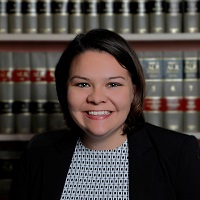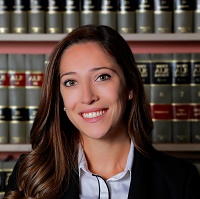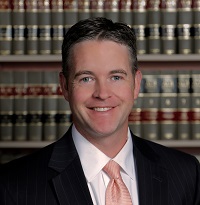Implementing an Employer-Sponsored Optional Volunteer Program?

Make Sure it Complies with the Fair Labor Standards Act
Many employers understand the value of giving back to their communities and realize the benefit of visibility within their communities. Thus, an increasing number of employers are following the new trend of implementing optional community service programs within their companies. In an employer-sponsored volunteer program, the employer allows employees to volunteer for a certain number of working hours each year or each month while providing the workers with the compensation they would have received for being on the job. In some instances, employees may volunteer during non-working hours and still receive some type of monetary award. These can include bonuses or non-monetary awards such as a party or other fun outing or activity.
In an employer-sponsored volunteer program of this nature, the employer may either sponsor a volunteer outing or outings in which employees can participate. Alternatively, businesses may allow employees to participate in a volunteer activity they have chosen for themselves. Such a program can have a significant benefits for both employees and employers, including improved morale at the work place, increased involvement and contributions in the community, and visibility within the community. However, it is wise to be cautious in the implementation of a volunteer program within any business or workplace.
A March 14, 2019 Opinion issued by the Wage and Hour Division of the United States Department of Labor addresses such programs and how they have the potential to violate the Fair Labor Standards Act (FLSA). The Opinion provides that “Congress did not intend for the FLSA ‘to discourage or impede volunteer activities,’ but rather to ‘prevent manipulation or abuse of minimum wage or overtime requirements through coercion or undue pressure upon individuals to ‘volunteer’ their services.’”
As such, under the law, an employer intending to implement a volunteer program is permitted to notify its employees of such volunteer opportunities and activities as well as ask for assistance from employees in participating in such volunteering tasks. An employer is also permitted to implement an incentive-based program so long as an employee’s participation in such a program is not mandatory. An employer-sponsored volunteer program cannot adversely affect working conditions or employment prospects for employees whether they do or do not choose to participate. In other words, an employer cannot engage in direct or implied retaliatory actions against an employee who chooses not to participate. Further, the employer cannot put undue pressure on the employees to participate in the program.
Moreover, the Opinion stated that an employer cannot “control or direct” the volunteer work of its employees. Specifically, an employer is not permitted to allow or disallow certain types of volunteer work and/or direct the employee on how to accomplish such volunteer work. If the employer does “direct or control” the way in which an employee completes a volunteering task and/or volunteering activity, that time will be considered hours worked under the FLSA. In turn, those hours are subject to the regulation of overtime and other standards under the FLSA. The Opinion also stated that employers may use certain methods of tracking the volunteer hours of its employees so long as the tracking device does not control or instruct the employee in their volunteerism.
The Opinion also states that compensating employees when they participate in volunteer activities during normal working hours does not “jeopardize their status as volunteers when they participate in volunteer activities outside of normal work hours.”
An employer may use an employee’s time volunteering as a factor in calculating whether to provide that employee with a bonus, “without incurring an obligation to treat that time as hours worked so long as: (1) volunteering is optional; (2) not volunteering will have no adverse effect on the employee’s working conditions or employment prospects; and (3) the employee is not guaranteed a bonus for volunteering.” In essence, a bonus cannot be guaranteed to an employee who volunteers and/or taken away from an employee who does not volunteer.
Therefore, if an employer chooses to engage its employees by implementing a volunteer program, the employer must ensure that it is complying with the FLSA. In order to do so, employers must ensure the following items are adhered to 1) employee volunteering is completely optional; 2) there are no adverse impacts or effects on employees who choose not to volunteer; 3) if an employer chooses to provide bonuses to employee-volunteers, that the bonus is not guaranteed in exchange for the employee’s volunteer hours; and 4) the employer does not direct or control the employee volunteer activities.
Employer-sponsored volunteer programs are valuable tools that provide many benefits for companies, employees and communities alike. If you, as an employer, are considering implementing such programming, it is important to confer with legal counsel regarding the specifics of such a program to ensure compliance with the FLSA.


Each year over 30,000 students participate in local high school mock trial competitions throughout the United States, Guam, South Korea, and the Northern Mariana Islands.
The State Bar of Nevada provides mentoring for high school mock trial teams throughout the State that compete at the regional and statewide level. The Bar’s statewide program is administered by a volunteer Mock Trial Committee, with assistance from the Washoe County Bar Association. The top team advances to the National High School Mock Trial Championship.
The program is supported by the Nevada Bar Foundation and an endowment made on behalf of attorney Charles Deaner. Deaner was an ardent supporter of law-related education and the Mock Trial program. He established a living trust to ensure the continued support of this endeavor. The Nevada State championship round is named in his honor.
Local attorneys, Jennifer McMenomy and Emilee Sutton, associates at Allison MacKenzie Law Firm have volunteered to mentor members of Carson High School’s Mock Trial Club. The two attorney coaches, along with a supervising Carson High School teacher, educate the students about legal processes and courtroom etiquette including: adversarial procedures, rules of evidence, examination of process and more. The program helps participants develop the tools and techniques needed to become effective litigators and worthy competitors in the courtroom.
In November Jennifer and Emilee began meeting with participants to explore facts and procedures regarding a civil case. Weekly, during a course of a few hours, the coaches, teacher and nine students delve into a case that focuses on religious discrimination.
Jennifer said, “Mentoring these kids is truly an enjoyable experience. I just love seeing the students get involved, and appreciate their enthusiasm about future legal careers. There is this “lights on” moment when they understand principles such as hearsay and what is admissible into court that is irreplaceable.”
Jennifer and Emilee have enjoyed the experience so much that they have committed to mentoring the club again next year.
“They learn what lawyering is all about. How court actually works and the legal process. I participated in mock trials when I was in high school, and it is fun to see it from the other prospective of mentoring. I love being involved with the kids,” Emilee stated.
This year marks Nevada’s 21st year of participation in the High School Mock Trial program. Regional and State Competitions dates are:
Southern Nevada
Regional
February 9, 2019Regional Justice Center, Las Vegas
Northern Nevada
Regional
February 22, 2019Federal Courthouse, Reno
State Competition
March 15-16, 2019Federal Courthouse, Reno
To learn more about the High School Mock Trial Program visit:
Allison MacKenzie partner Ryan Russell will be one of this year’s celebrity waiters at the 2018 Have a Heart Celebrity Waiter Fundraiser Dinner. The event is scheduled for Saturday, May 19th at Glen Eagle’s Restaurant and Lounge located at: 3700 N Carson St. in Carson City, Nevada.
The Have a Heart Celebrity Waiter Fundraiser Dinner is just one of the many outstanding events organized by local charity, Friends In Service Helping (FISH). FISH provides food, clothing, shelter and medical aid to the homeless and hungry within our community, with the objective to provide programs and referrals to families and individuals so that they may become self-sufficient.
Ryan will be working along with other local notables, including KOLO 8 Meteorologist Jeff Thompson, and competing for tips to help raise money to provide services for the local homeless and hungry population.
“I am honored to be able to help FISH by being a waiter at the Have a Heart Celebration. The mission of FISH is honorable and a direct benefit to the community I love and hope to serve into the future,” said Ryan Russell about his upcoming volunteer opportunity.
In addition to volunteering for this event, Ryan is active with Carson City Rotary Club and the Boys and Girls Club of Western Nevada where he served as President of the Board of Directors in 2009.
Event seating is limited and available at 5:00 pm and 7:30 pm. Dinner tickets are $65 per person or $500 for a table of 8. A no host cash bar is available. Tickets can be purchased at: NVFish.com. For more information, contact FISH: 775.882.FISH or info@NVFish.com.






